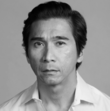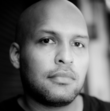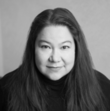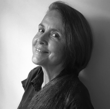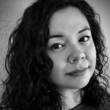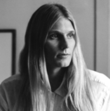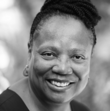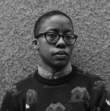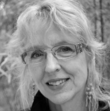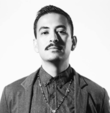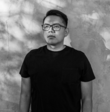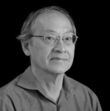January
Joseph O. Legaspi was born in the Philippines, where he lived before immigrating to Los Angeles with his family at age twelve. He received a BA from Loyola Marymount University and an MA from New York University’s Creative Writing Program. A Fulbright scholar and two-time NYSCA/New York Foundation for the Arts poetry fellow, Legaspi is the author of two poetry collections from CavanKerry Press, Threshold (2017) and Imago (2007) and three chapbooks: Postcards (Ghost Bird Press, 2019); Aviary, Bestiary (Organic Weapon Arts, 2014); and Subways (Thrush Press, 2013). His poems have appeared in POETRY, New England Review, Harvard Review, World Literature Today, The Common, Beloit Poetry Review, Best of the Net, and multiple anthologies. He co-founded Kundiman (www.kundiman.org), a national organization serving generations of writers and readers of Asian American literature. He works at Columbia University, and teaches at New York University and Fordham University.
February
John Murillo is the author of the poetry collections Up Jump the Boogie (Four Way Books, 2020), finalist for both the Kate Tufts Discovery Award and the Pen Open Book Award, and Kontemporary Amerikan Poetry (Four Way Books, 2020), winner of the Kingsley Tufts Poetry Award and the Poetry Society of Virginia’s North American Book Award, and finalist for the PEN/Voelcker Award for Poetry and the NAACP Image Award. His other honors include the Four Quartets Prize from the T.S. Eliot Foundation and the Poetry Society of America, two Larry Neal Writers Awards, two Pushcart Prizes, the J Howard and Barbara MJ Wood Prize from the Poetry Foundation, an NYSCA/NYFA Artist Fellowship, and fellowships from the National Endowment for the Arts, MacDowell, the Bread Loaf Writers Conference, Fine Arts Work Center in Provincetown, Cave Canem Foundation, and the Wisconsin Institute for Creative Writing. Recent poems have appeared in such publications as American Poetry Review, Poetry, and Best American Poetry 2017, 2019, and 2020. He is assistant professor of English and director of the creative writing program at Wesleyan University.
March
Brenda Shaughnessy was born in Okinawa, Japan, in 1970 and grew up in Southern California. She received her BA in literature and women’s studies at the University of California, Santa Cruz, and she earned an MFA at Columbia University.
She is the author of The Octopus Museum (Alfred A. Knopf, 2019); So Much Synth (Copper Canyon Press, 2016); Our Andromeda (Copper Canyon Press 2012), which was a finalist for the Griffin International Poetry Prize and the Kingsley Tufts Award; Human Dark with Sugar (Copper Canyon Press, 2008), winner of the James Laughlin Award from the Academy of American Poets; and Interior with Sudden Joy (Farrar, Straus & Giroux, 1999), which was nominated for the PEN/Joyce Osterweil Award for Poetry, a Lambda Literary Award, and the Norma Farber First Book Award.
About her work, the poet Richard Howard writes: “The resonance of Shaughnessy’s poems is that of someone speaking out of an ecstasy and into an ecstasy, momentarily pausing to let us in on the fun, the pain.”
Shaughnessy is a 2013 Guggenheim Foundation Fellow and a recipient of a Howard Foundation Fellowship from Brown University, a 2001 Bunting Fellow at the Radcliffe Institute for Advanced Study at Harvard University, and a Japan/US Friendship Commission Artist Fellowship. She currently serves as an associate professor at Rutgers University–Newark.
April
Naomi Shihab Nye is a Palestinian-American writer, editor, and educator who grew up in Ferguson, Missouri, Jerusalem, and San Antonio, Texas, where she continues to live. She has been a visiting writer in hundreds of schools and communities all over the world for many years, and has written and edited more than 30 books, including collections of poetry, novels for teens, picture books, essays, very short fictional stories, and anthologies of poetry. Sitti’s Secrets was published by Aladdin Books in 1994. Several other collections, Habibi (1997); The Tree is Older than You Are: Poems & Paintings from Mexico (1995); and This Same Sky (1992), were published by Simon & Schuster. Nye's books have been in print for more than 20 years. Her volume 19 Varieties of Gazelle: Poems of the Middle East (Greenwillow Books, 2005) was a finalist for the National Book Award. The Turtle of Oman (Greenwillow, 2009) will be followed by The Turtle of Michigan in March 2022. She is the Poetry Foundation's Young People’s Poet Laureate until summer 2022. In 2019, Nye received the Ivan Sandrof Lifetime Achievement Award from the National Book Critics Circle and, in 2018, the Lon Tinkle Award for Lifetime Achievement from the Texas Institute of Letters. Her book The Tiny Journalist: Poems (BOA Editions, 2019) won poetry awards from the Texas Institute of Letters and the Writers' League of Texas in 2020.
May
Brandy Nālani McDougall is a Kanaka ʻŌiwi (Hawaiʻi, Maui, and Kauaʻi lineages) poet raised on the slopes of Haleakalā on Maui. Her book, ʻĀina Hānau, Birth Land, is forthcoming in 2022. She is an associate professor of American Studies at the University of Hawaiʻi at Mānoa.
June
Jos Charles is author of feeld (2018), a Pulitzer-finalist and a winner of the 2017 National Poetry Series, and, most recently, A Year & other poems (2022), both from Milkweed Editions. Jos Charles has an MFA from the University of Arizona. She is currently a PhD student in English at UC Irvine and resides in Long Beach, CA.
July
Erica Hunt is a poet and essayist. She is the author of Jump the Clock: New and Selected Poems (Nightboat Books, 2020) and five collections of poetry--VERONICA: A Suite in X Parts (selva oscura press, 2019); Time Flies Right Before the Eyes (Belladonna, 2006); Piece Logic (Carolina Wren Press, 2001); Arcade (Kelsey Street Press, 1996); and Local History (Roof Books, 1994). Her poems and non-fiction have appeared in BOMB, Boundary 2, Brooklyn Rail, Conjunctions, The Los Angeles Review of Books, Poetics Journal, Tripwire, FENCE, Hambone, and In the American Tree, among other publications. Essays on poetics, feminism, and politics have been collected in Moving Borders: Three Decades of Innovative Writing by Women (Talisman House, 1998); The Politics of Poetic Form (Small Press Distribution, 1990); The World (Globe Book Co., 1983), and other anthologies. With poet and scholar Dawn Lundy Martin, Hunt is co-editor of the anthology Letters to the Future, Black Women/Radical Writing (Kore Press, 2018). She has received awards from the Foundation for Contemporary Arts, the Fund for Poetry, the Blue Mountain Center, and the Djerassi Foundation, and is a past fellow of the Duke University and University of Capetown Program in Public Policy. Currently, she is the Bonderman Visiting Professor of the Practice in the literary arts department at Brown University.
August
Donika Kelly is the author of The Renunciations: Poems (2021) and her début, Bestiary: Poems (2016), both published by Graywolf Press. Bestiary is the winner of the Cave Canem Poetry Prize, a Hurston/Wright Legacy Award, and the Kate Tufts Discovery Award. She is a Cave Canem graduate fellow and a founding member of the collective Poets at the End of the World. Her poems have been published in The New Yorker, The Atlantic, The Paris Review, and Foglifter. She currently lives in Iowa City and is an assistant professor in the English Department at the University of Iowa, where she teaches creative writing.
September
Cynthia Hogue’s most recent collections are Revenance, listed as one of the “standout” books of 2014 by the Academy of American Poets, and In June the Labyrinth (2017), both published by Red Hen Press. Her tenth collection, instead, it is dark, will be out from Red Hen Press in 2023. She has published two translations, both with Sylvain Gallais. Fortino Sámano (The overflowing of the poem) was published by Omnidawn in 2012 and translated from the French of Virginie Lalucq and Jean-Luc Nancy. It won the Landon Translation Award from the Academy of American Poets in 2013. The second is Nicole Brossard’s Lointaines, forthcoming from Omnidawn in 2022. Hogue’s next chapbook is entitled Contain (Tram Editions, 2022). Her honors include two NEA Fellowships, a MacDowell Colony residency, a Witter Bynner Translation Fellowship, and the H.D. Fellowship at Yale University. Before assuming the Maxine and Jonathan Marshall Chair in Poetry in 2003 at Arizona State University, she directed the Stadler Center for Poetry at Bucknell University. Hogue is an emerita professor of English, and lives in Tucson.
October
Marcelo Hernandez Castillo is the author of Children of the Land: a Memoir (Harper Collins, 2020); Cenzontle (BOA editions, 2018), selected by Brenda Shaughnessy as the winner of the 2017 A. Poulin, Jr. Prize; and Dulce (Northwestern University Press, 2018), winner of the Drinking Gourd Prize. He is a founding member of the Undocupoets, which eliminated citizenship requirements from all major poetry book prizes in the U.S., and was recognized with the Barnes and Noble Writers for Writers Award. He was the first undocumented student to graduate from the Helen Zell Writers Program at the University of Michigan and lives in Northern California, where he serves as the poet laureate of Yuba and Sutter Counties. He currently teaches at St. Mary’s College of California and the Ashland University Low-Res MFA program.
November
Jake Skeets is the author of Eyes Bottle Dark with a Mouthful of Flowers (Milkweed, 2019), winner of the National Poetry Series, Kate Tufts Discovery Award, American Book Award, and Whiting Award. He is from the Navajo Nation and teaches at Diné College.
December
Born in New York City in 1950, Arthur Sze is a poet, translator, and editor. He is the author of eleven books of poetry, including The Glass Constellation: New and Collected Poems (Copper Canyon Press, 2021); Sight Lines (Copper Canyon Press, 2019), for which he received the National Book Award for Poetry; Compass Rose (Copper Canyon Press, 2014), a Pulitzer Prize finalist; The Ginkgo Light (Copper Canyon Press, 2009), selected for the PEN Southwest Book Award and the Mountains & Plains Independent Booksellers Association Book Award; Quipu (Copper Canyon Press, 2005); The Redshifting Web: Poems 1970–1998 (Copper Canyon Press, 1998), selected for the Balcones Poetry Prize and the Asian American Literary Award; and Archipelago (Copper Canyon Press, 1995), selected for an American Book Award.
He is also a celebrated translator from the Chinese and released The Silk Dragon: Translations from the Chinese (Copper Canyon Press, 2001), selected for the Western States Book Award, and edited Chinese Writers on Writing (Trinity University Press, 2010).
About his work, Jackson Mac Low has said, “The word ‘compassion’ is much overused—‘clarity’ less so—but, Arthur Sze is truly a poet of clarity and compassion.”
Speaking about Sze’s contributions to the art of poetry, Naomi Shihab Nye has said, “Arthur Sze’s work has long been a nourishing tonic for the mind—presences of the natural world, wide consciousness, and time, combine in exquisitely shaped and weighted lines and stanzas to create a poetry of deep attunement and lyrical precision. Sze’s ongoing generous exchange with Asian poets and devotion to translation in collections such as The Silk Dragon enriches the canon of world poetry immeasurably.”
His honors include the 2021 Shelley Memorial Award from the Poetry Society of America, the Jackson Poetry Prize from Poets & Writers, a Lannan Literary Award, a Guggenheim Fellowship, a Lila Wallace-Reader’s Digest Writers’ Award, two National Endowment for the Arts Creative Writing Fellowships, a Howard Foundation Fellowship, as well as five grants from the Witter Bynner Foundation for Poetry.
He has served as a Zell Visiting Writer at the University of Michigan, a Visiting Hurst Professor at Washington University, a Doenges Visiting Artist at Mary Baldwin College and has conducted residencies at Brown University, Bard College, Naropa University, and the University of Utah.
Sze was elected to the American Academy of Arts and Sciences in 2017 and served as Chancellor of the Academy of American Poets from 2012 to 2017. He is a professor emeritus at the Institute of American Indian Arts, and was the first poet laureate of Santa Fe, New Mexico, where he lives.
